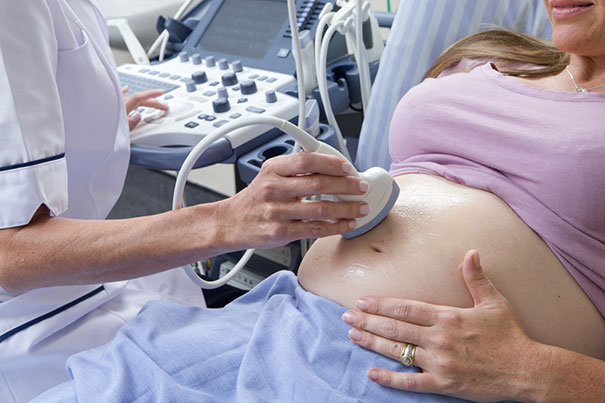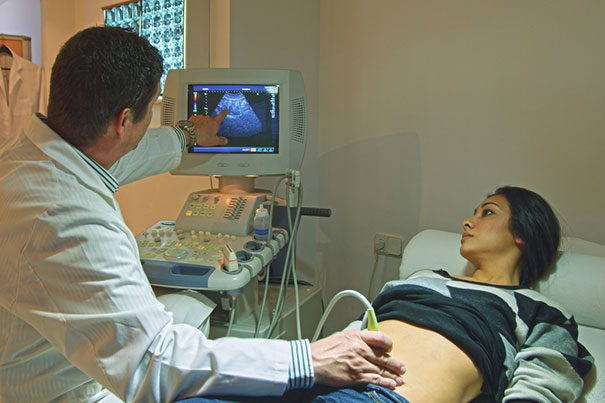
hCG Levels in Early Pregnancy
Human chorionic gonadotropin, or hCG for short, is often referred to as ‘the pregnancy hormone’ due to its presence in large quantities during pregnancy. All pregnancy tests work by detecting hCG, which is crucial to the development of a foetus. Read below to learn more about hCG, when it can be detected using at-home pregnancy tests and standard hCG levels during early pregnancy.
What Is hCG and When Does Your Body Start Producing It?
Human chorionic gonadotropin (hCG) is known as the pregnancy hormone, as your body produces it in large amounts when you’re pregnant.
While hCG levels are typically low, they elevate during pregnancy and double approximately every 48 hours in viable early pregnancy:
Together, these hormones help build the lining of the uterus and send signals to the ovaries to stop releasing eggs, ultimately stopping your period.
In Summary
hCG levels quickly elevate when you become pregnant, especially after the fertilized egg attaches to your uterine lining and the embryo implants into the wall of the uterus. This hormone works together with oestrogen and progesterone to build the lining of the uterus and stop your body from releasing more eggs.
During those first few weeks of pregnancy, you may not show any outward signs of being pregnant and may not even know you’re pregnant yet! However, you may experience some implantation bleeding when the fertilized egg attaches to the lining of the uterus (as described above). Implantation bleeding is totally normal and often comes in the form of light spotting.
When Can Pregnancy Tests Detect hCG?
Home pregnancy tests often work by detecting hCG in your urine. As over-the-counter pregnancy tests all work differently, we recommend reading the instructions on the box. During early pregnancy hCG levels double every two days, so hCG becomes easier to detect as the days progress. This is why it's a good idea to wait until after the first day of your missed period to take the test, as taking the test any earlier may result in a false negative.
Wondering when to take the test? Most home pregnancy tests can be carried out from the first day of a missed period. If you aren’t sure when your next period is due, the NHS recommends waiting at least 21 days since you last had unprotected sex before taking a test.
If you’re look for a more accurate method to detect hCG levels, it may be best to opt for a blood test. Compared to urine tests, blood tests tend to provide more reliable results as more hCG can be found in the blood than in the urine.
A blood test is the most accurate way to detect hCG levels, because more of the pregnancy hormone is present in the blood than in the urine. Blood tests also require lower hCG levels to detect a pregnancy, as explained below:
If your test is positive, contact your GP or a midwife to start your antenatal care and find out how far along you are.
In Summary
It’s often best to wait until three or four weeks after the first day of your last period before taking a home pregnancy test as they require a higher hCG concentration. For even more accurate results, wait until after you’ve noticed you’ve missed your period. Your GP may then carry out a blood test to confirm you are pregnant.
Get ready for your baby’s arrival by finding out your estimated due date with our Due Date Calculator using either the date of conception or the date of the first day of your last period!
RELATED PREGNANCY TOOL
hCG Levels Chart by Week
The week-by-week chart provides a guide on how your hCG levels may rise during the first trimester, and then dip slightly during the second trimester. Please consult your GP for more information on your personal hCG levels.
What Does It Mean if You Have High or Low hCG Levels?
Every pregnancy is different, and the same goes for hCG levels. You may find that you have lower or higher levels of hCG than the ranges in the chart above. There’s likely no reason to worry, but your GP will be able to help you understand what these levels mean.
Low Levels of hCG
Low levels of hCG are normal for non-pregnant women and men. Normally, hCG levels would be less than 5 mIU/mL and less than 2 mIU/mL, respectively. If you’re pregnant and experience low hCG levels, it’s important to look at your entire pregnancy as a whole. Your GP will consider all the factors of your pregnancy to determine why you might be experiencing lower-than-normal levels of hCG. Additional tests may be required to rule out other causes like ectopic pregnancy.
High Levels of hCG
Similarly to low levels, high levels of the hCG hormone might not necessarily indicate anything out of the ordinary. However, a higher-than-normal level of hCG may be a sign that you’re having multiples! Your GP will work with you to determine an appropriate course of action, if any is needed. Lower- or higher-than-normal levels of the hCG hormone during your pregnancy might not indicate anything unusual. However, it’s always a good idea to discuss any concerns you may have with your GP. Read more about other pregnancy warning signs.
In Summary
Every pregnancy is different, just like hCG levels. You may find that your hCG levels don’t fall into the range in the above charge. If so, your GP will be able to determine why you may have low or high levels of hCG. High hCG levels may even indicate that you’re expecting multiples!
FAQs AT A GLANCE
Elevated hCG levels above 5 mIU/mL may indicate pregnancy.
The Bottom Line
hCG is one of the main pregnancy hormones your body produces in the first trimester, with production doubling every 48 hours during early pregnancy. It’s also responsible for that special ‘pregnancy glow’. Hormonal changes can understandably leave you feeling a little off from time to time during your pregnancy, but they are also there to reassure you that you baby is growing and almost ready to meet you!
Read more about Pregnancy
Related Articles
Join Pampers Club and get:













